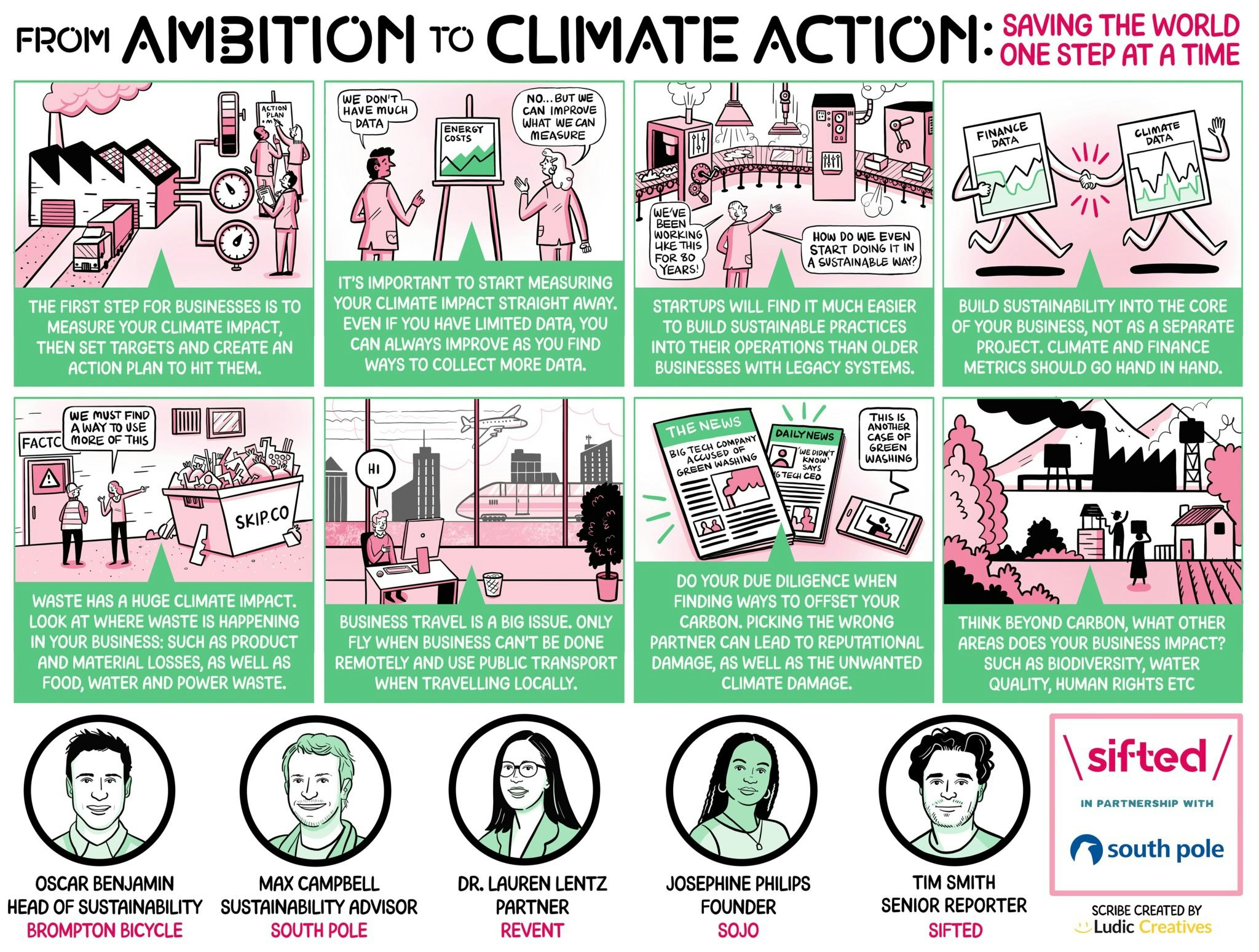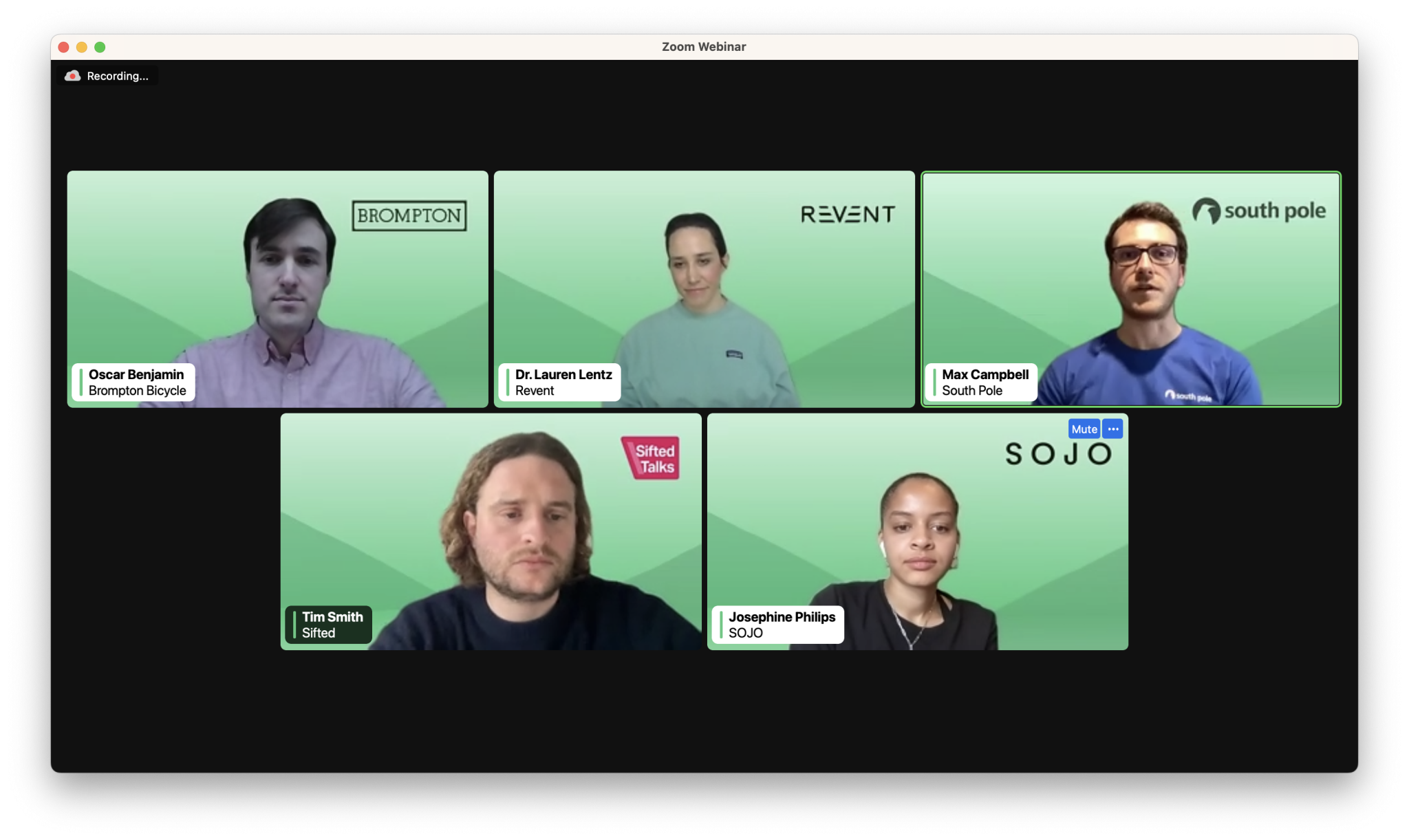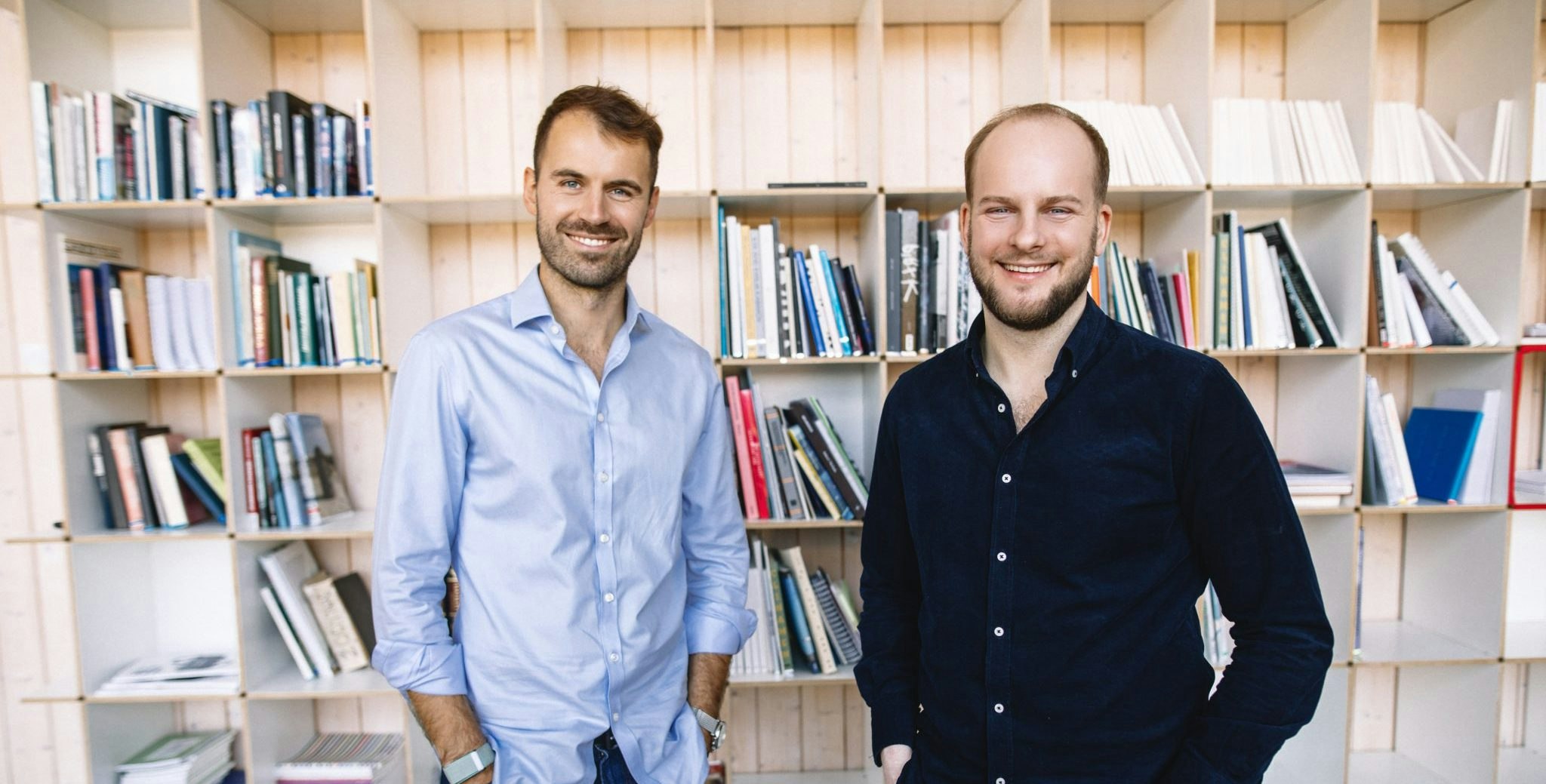Scientists have delivered their starkest warning yet on the climate crisis — and countries across the globe are struggling to cope with the impact of global warming. While tech alone can’t achieve sustainability targets, it will play a huge role in the path to net zero.
So how can startups help move the world away from the brink of irrevocable damage? At our latest Sifted Talks, we asked the experts what tech companies can do to improve their sustainability offering and contribute to a greener economy.
Our panel included:
- Max Campbell, sustainability adviser at South Pole, a carbon finance consultancy that helps businesses develop sustainability strategies
- Dr Lauren Lentz, partner at Revent, an early-stage tech fund backing mission-driven founders
- Josephine Philips, founder at SOJO, a clothing repairs and alterations platform
- Oscar Benjamin, head of sustainability at Brompton Bicycle, manufacturer of folding bicycles
Here’s what we found out:

1/ Start small, but measure your emissions
As measurement can be difficult for early-stage startups, they should start with direct emissions, said Campbell. He added that startups should start with data that they already have — even if it's not the most accurate — and with time, startups can scale their measurement processes as the company improves at data collection.
Benjamin added that it’s key to think about what the different scopes of emission are for your company — all the way from direct emissions like transportation (scope 1) to the emissions from the use of electricity (scope 2) and the embodied emissions in your products or infrastructure (scope 3).
“The idea is that this is a marathon — and not a sprint. So when you start your data collection process, do it with the data that you have available and don't slow yourself down by saying ‘I'm not ready yet’” — Max Campbell, South Pole
2/ Pick a framework that suits your business needs
There are many different frameworks out there that companies can use to measure their impact — but the foundation of all climate standards is the GHG or Greenhouse Gas Protocol, said Benjamin. Established in 1998, GHG is a global accounting standard that details how public and private sector entities can measure carbon emissions.
However, panellists also mentioned that it can be reductionist to measure just carbon emissions. It’s key to look at what your business does and the product you sell before deciding how to measure, said Benjamin. A good place to start is the Sustainability Accounting Standards Board, which defines the most material metrics important for your specific industry.
“The best way to start is to think about what your product or service actually does. For example, if your product is going to have a big impact on biodiversity because it's in the agricultural space, it's really important to think about biodiversity first instead of carbon and the associated human rights challenges around agricultural commodities” — Oscar Benjamin, Brompton Bicycle
3/ Have access to a community — and experts
Campbell said it’s important to have a community of similar people tackling impact, for example, from other companies that are also working towards sustainability — as well as access to subject experts.
Once a community is set up and emissions are measured, startups are equipped to set targets for reducing the emissions through a practical plan of action.
Campbell also highlighted the need for transparency in the process — if you're not doing certain things, explain why you're not doing them and what you're going to do about it in the future. And this holds true for all parties, whether internal or external stakeholders.
“Having access to a community of other people who are facing the same situation, and also to experts who can provide all their expertise on the topic is the best way to get started” — Campbell

4/ Promote green practices internally from an early stage
Companies can do a lot internally to reduce their footprint, including promoting cycle to work schemes, being mindful of the food served in the canteen and avoiding unnecessary international travel.
Lentz said that companies should be thoughtful about how flights are taken for work where trains could have been used instead and where travel can be avoided altogether, such as for events that can be attended remotely.
Adding to this, Benjamin said that for web-based companies, opting for a cloud computing service that powers their servers with renewable energy is crucial as it would make up a big percentage of the end impact.
Philips gave the example of sustainable clothing brand Organic Basics offering users the option to view a low-carbon or high-carbon version of their website.
“Gone are the days when executives or founders are flying to every single conference and doing every single meeting in person — so we look for some degree of thoughtfulness around when these long-distance flights are taken” — Dr Lauren Lentz, Revent
5/ Think about sustainability — from production to deliveries
A big part of impact is in the materials used in production — and in making the production process as efficient as possible in terms of minimising waste, said Benjamin. He emphasised the need to use sustainable materials in production such as recycled materials.
Deliveries are also a key area to look at. At SOJO, all pickups and dropoffs are done using bicycles, said Philips. While this was feasible as an early-stage startup servicing only London, startups would eventually need to partner with bigger players to scale this kind of sustainability offering as the company grows, she added. SOJO did this by partnering with an e-cargo bike pickup and dropoff zero-emission delivery provider in London.
“You have to partner with the right stakeholders who have the power to make sure that change can happen” — Josephine Philips, SOJO
Like this and want more? Watch the full Sifted Talks here:



